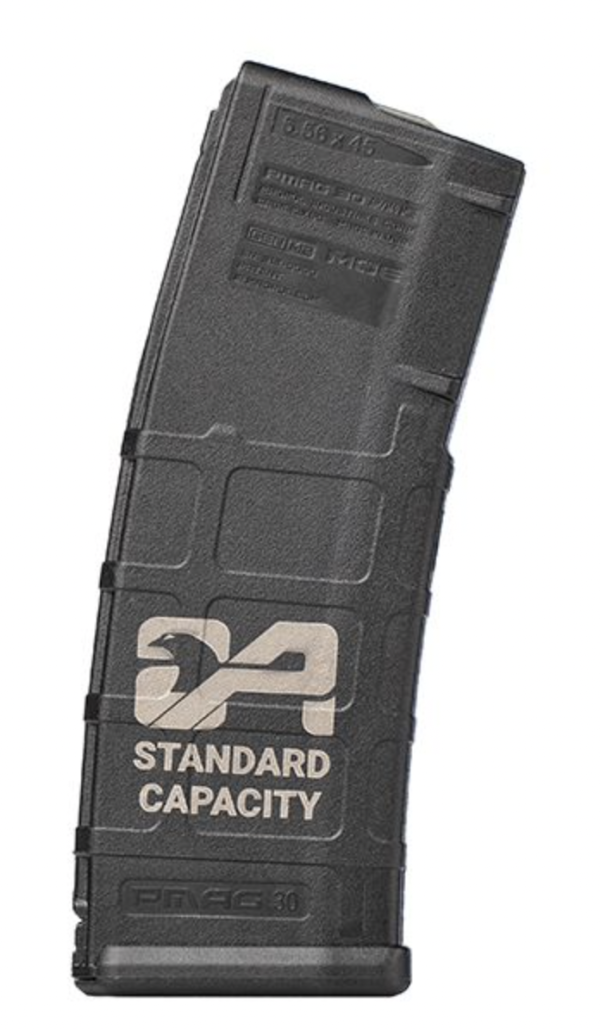Today's feature is from The Outdoor Wire -- and our publisher, Jim Shepherd.
The United States Senate announced yesterday that it had reached a bipartisan agreement for a “framework” aimed at reducing mass shootings in the U.S. According to the initial information we’ve seen, the bipartisan group of Senators Chris Murphy (D-CT), John Cornyn (R-TX), Krysten Sinema (D-AZ) and Thom Tillis (R-NC) have written a proposed bit of legislation they say “saves lives while also protecting the constitutional rights of law-abiding Americans.”
If they succeed, it would be quite the accomplishment.
The country has never been so clearly divided over “gun rights.”
Today, more Americans than ever before own guns. At the same time, the opposite side of the ideological chasm wants to outlaw-not restrict- the most popular one, impose further age restrictions on ownership of all guns, and enact strict regulations on firearm capacities.
Not exactly the atmosphere for “bipartisan cooperation.” Not that bipartisanship has been demonstrated in any way in Washington lately.
There is a disconcerting element to what many dismiss as a “here we go again” scenario: in addition to ten Democrats endorsing the “framework” ten Republican Senators have also signed onto the agreement. Roy Blunt of Missouri, Richard Burr of North Carolina, Bill Cassidy of Louisiana, Susan Collins of Maine, Lindsey Graham of South Carolina, Rob Portman of Ohio, Mitt Romney of Utah and Pat Toomey of Pennsylvania have lent their support to the effort.
If you’re doing the math, that gives an evenly divided Senate 60 votes of support- enough to prevent any potential blocking of proposed legislation brought to the floor. That, of course, provided the Republicans who have committed to the process continue that support to final legislation.
At this point, the Senators say they’re focused on additional federal funding for mental-health programs and school security, along with incentives for states to implement red-flag laws and include juvenile records in background checks for people under 21 buying guns.
There were a host of proposals that turned out to be non-starters. Raising the age limit for purchasing modern sporting rifles (AR-or AR-“style” rifles) from 18-21 or banning them entirely (President Biden’s expressed desire), weren’t going anywhere.
As word of the agreement started to spread yesterday, it didn’t take long for the outrage to manifest. And Republican operatives began reaching out to media members almost as quickly.
“Remember,” I was reminded about four times in an otherwise short phone conversation yesterday afternoon, “this is an agreement on principles, not legislation. There’s a huge difference.” There were also assurances that any “firearms-related provisions” (whatever those are) would be “closely scrutinized” by Republicans.
Here’s one thing the conversation did make more clear. There’s already more detail behind the announcement than the Senators and their political operatives are freely sharing.
Proposed red flag legislation, for example, already talks about federal “incentives” (most likely grants) to states to implement “extreme protection orders” that allow for removal of guns from a person “deemed unsafe.”
The admission of the thought process, however, contained no further detail on just how the states are supposed to address legal challenges including denial of due process, strict standards for qualification, permissible length of such restrictions, appeals, or timeframes for the return of any confiscated firearms.
Texas Senator Cornyn has made it clear from the get-go that while he’s interested in getting a compromise approved, his interest is limited by any reduction of gun owners’ rights under the Second Amendment. “It (the agreement) is not about creating restrictions on law-abiding citizens,” he says, “It’s about ensuring that the system we already have in place works as intended.”
For pro-gun groups, that’s not exactly reassuring.
That’s because any proposed legislation clearing the Senate is virtually assured passage into law.
House Speaker Nancy Pelosi said Friday the House would move to enact “whatever bill the Senate manages to pass.”
It’s a small comfort to gun owners at this point, but that enthusiastic support for any Senate measure confirms the fact that even the most dedicated anti-gunners in the House of Representatives realize the four anti-gun measures the approved last week had little -if any- chance of making it through the Senate.
They did, however, offer liberals running for reelection political cover. And in Washington, that’s often the reasoning behind much of the “eyewash” legislation so much time is wasted on.

Aero Precision has teamed up with the Second Amendment Foundation to offer “Standard Capacity” magazines with net proceeds going to help the SAF’s legal battles against anti-gun legislation.
|
No one involved in the fight to preserve gun rights is relaxing at this point. Especially as more liberal state houses across the country are passing gun control bills as quickly as they can get them written.
Washington and Delaware, for example, have already written bans on magazine capacities. And companies are already stepping up to fight them.
Aero Precision, for example, has teamed with the Second Amendment Foundation to help with the SAF’s legal bills in fighting such legislation. Aero’s selling “standard capacity” magazines (30 rounders) with the net proceeds from those sales going toward the SAF’s legal bills.
The magazines are $19.99 each and available here. Those magazines are, of course, subject to “federal, state and local laws and regulations” -and you’re expected to know those laws before ordering a prohibited product. Don’t order something that could get you in the soup with the local authorities. If you want to support the SAF and can’t legally own those magazines, follow the link above and make a contribution. The laws you help change may be your own.
As always, we’ll keep you posted.
— Jim Shepherd